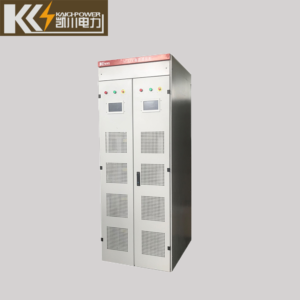
Power electronics and energy systems play a crucial role in modern infrastructure, encompassing the generation, conversion, distribution, and utilization of electrical energy. Advanced Programmable Filters (APF) have emerged as key components in power electronic systems, offering enhanced efficiency, reliability, and control capabilities. This article delves into the applications of APF filters in power electronics and energy systems, exploring their role in harmonic mitigation, power factor correction, grid stabilization, and more.
Understanding Power Electronics and Energy Systems: Power electronics is a specialized field focused on the control and conversion of electrical power. Energy systems encompass a broader range of technologies and infrastructure involved in energy generation, transmission, and distribution. Power electronic devices such as inverters, converters, and rectifiers play a vital role in energy systems by enabling efficient power conversion, voltage regulation, and grid integration of renewable energy sources.
The Role of APF Filters in Power Quality Improvement: APF filters are instrumental in improving power quality by addressing issues such as harmonics, voltage fluctuations, and reactive power imbalance. Harmonic distortion, caused by nonlinear loads and power electronic devices, can lead to equipment malfunction, increased losses, and reduced system efficiency. APF filters mitigate harmonics by selectively filtering out unwanted frequency components, ensuring compliance with power quality standards and regulations.
Harmonic Mitigation and Active Power Filtering: One of the primary applications of APF filters is harmonic mitigation in power systems. By detecting and suppressing harmonic currents or voltages, APF filters reduce harmonic distortion levels, prevent equipment overheating, and improve system reliability. Active power filtering techniques, implemented using APF filters, enable dynamic compensation of harmonics in real-time, ensuring optimal power quality under varying load conditions.
Power Factor Correction and Reactive Power Compensation: APF filters contribute to power factor correction and reactive power compensation in energy systems. Reactive power, caused by inductive or capacitive loads, can lead to inefficient energy utilization and voltage regulation issues. APF filters actively adjust the phase angle and magnitude of current or voltage signals to achieve unity power factor and minimize reactive power consumption, improving system efficiency and reducing losses.
Grid Stabilization and Voltage Regulation: In grid-connected power systems, APF filters play a crucial role in grid stabilization and voltage regulation. Fluctuations in grid voltage and frequency, caused by changes in load demand or renewable energy generation, can impact system stability and reliability. APF filters provide dynamic voltage support and frequency control by injecting or absorbing reactive power, ensuring grid stability and maintaining voltage within acceptable limits.
Renewable Energy Integration and Microgrid Operation: With the increasing penetration of renewable energy sources such as solar and wind power, APF filters facilitate the integration of these intermittent energy sources into the grid. APF filters enable seamless synchronization, grid-tied operation, and power quality management of renewable energy systems. In microgrid applications, APF filters enhance system resilience, balance power flows, and support islanded operation during grid disturbances.
Practical Applications and Case Studies: Real-world examples demonstrate the practical benefits of integrating APF filters into power electronics and energy systems. Case studies include applications in industrial facilities for harmonic mitigation and power factor correction, as well as in renewable energy installations for grid integration and stability enhancement. By showcasing these success stories, stakeholders gain insights into the tangible impact of APF filters on power system performance and reliability.
Challenges and Future Directions: While APF filters offer significant advantages in power electronics and energy systems, they also face challenges such as cost, complexity, and interoperability with existing infrastructure. Addressing these challenges requires continued research and development efforts focused on optimizing APF filter algorithms, reducing implementation costs, and standardizing integration interfaces. Additionally, advancements in grid automation, smart grid technologies, and energy management systems will further enhance the effectiveness of APF filters in future energy systems.
Conclusion: In conclusion, APF filters play a vital role in improving the efficiency, reliability, and stability of power electronics and energy systems. By addressing issues such as harmonic distortion, power factor correction, and grid instability, APF filters contribute to enhancing power quality, reducing energy losses, and enabling the integration of renewable energy sources. As energy systems continue to evolve towards a more sustainable and resilient future, APF filters will remain essential components in achieving optimal performance and efficiency.
